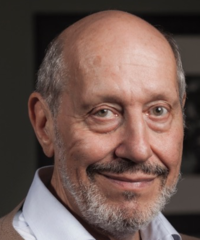The way we see the world is radically different from our medieval forebears. How was this transition made? How did we exchange organised superstition for a science of the world based on evidence, experimentation, prediction and control? Jonathan Israel (https://en.wikipedia.org/wiki/Jonathan_Israel) here offers a magisterial study of what became known as ‘The Enlightenment’ (https://plato.stanford.edu/entries/enlightenment/).
Israel lauds the Enlightenment as the period when Europe shifted from being a culture ‘based on a largely shared core of faith, tradition and authority’ to one in which ‘everything, no matter how fundamental or deeply rooted, was questioned in the light of philosophical reason’ and in which ‘theology’s age-old hegemony’ was overthrown. His central thesis is that there were two Enlightenments. The mainstream Enlightenment of Kant, Locke, Voltaire and Hume is the one of which we know. But it was the ‘Radical Enlightenment’, shaped by lesser-known figures such as d’Holbach, Diderot, Condorcet and, in particular, the Dutch philosopher Baruch Spinoza, that provided the Enlightenment’s heart and soul. The two divide on the question of whether reason reigns supreme in human affairs, as the radicals insisted, or whether reason had to be limited by faith and tradition – the view of the mainstream. The mainstream’s intellectual timidity constrained its critique of old social forms and beliefs. By contrast, the Radical Enlightenment ‘rejected all compromise with the past and sought to sweep away existing structures entirely’. In Israel’s view, what he calls the ‘package of basic values’ that defines modernity – toleration, personal freedom, democracy, racial equality, sexual emancipation and the universal right to knowledge – derives principally from the claims of the Radical Enlightenment.
In the last few years when obscurantism, lies, ‘fake news’, ‘alternative facts’, and violent religious fanatics have come to the fore, a reminder of how we got to science and modernity is well worth reading. This is as rich and stimulating a book on the subject as you could hope to read.
Complement this with Anthony Grayling’s book The Age of Genius: The Seventeenth Century and the Birth of the Modern Mind (2016) (https://www.amazon.co.uk/Age-Genius-Seventeenth-Century-Modern/dp/0747599424/ref=tmm_hrd_swatch_0?_encoding=UTF8&qid=1516118792&sr=8-1)
Check if this title is in your local library by consulting the online catalogue here Home | South Lanarkshire Libraries (sllclibrary.co.uk)
810 pages in Oxford University Press
First published 2001
ISBN 978-0198206088

Professor Jonathan Israel – An Enlightened scholar


